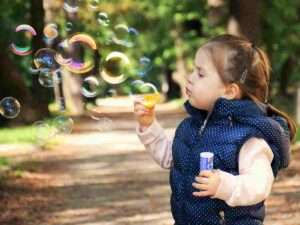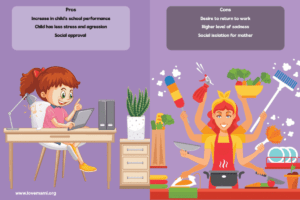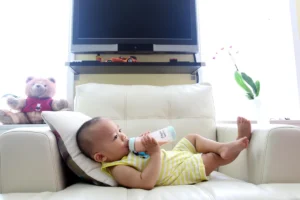Being able to understand and help a highly sensitive child can be satisfying and challenging. Through the experiences of my daughter, who is a very sensitive child, this post will focus on the signs of high sensitivity. Her experience reflects the distinct characteristics and actions frequently displayed by kids with high sensitivity levels. Since I am a highly sensitive person, the advice I provided in my earlier post on handling a child’s big emotions has also worked for me.
A Highly Sensitive Child's Symptoms
Empathy and Emotional Result:
One of the symptoms of highly sensitive child is being impacted by others emotions. It has been noted that my daughter is highly sensitive to the feelings of other people. One instance of this happened at a family gathering. She unintentionally struck her cousin with a ball when they were playing. When her aunt expressed concern for her son, my daughter broke down in tears because she felt so guilty. She struggled to recognize herself as the source of her cousin’s pain because of how empathetic she was. Reassuring her that it was an accident and talking about her love for her cousin helped to calm her down.
Being Sensitive to Criticism and Discipline:
Sensitivity to Correction and Discipline: For my daughter, gentle correction has always worked better than harsh punishment. She was once given a strong warning not to break her new doll by her grandparents to teach her the value of caring for her toys. She started crying as soon as she thought she had broken the doll when the head came off. It was important to gently explain that the doll was designed to be detachable and that it was not broken. Toys eventually break, and that’s normal and acceptable. She was able to relax and gain a deeper understanding of the circumstances thanks to this strategy.
Physical Sensitivity level:
She is frequently bothered by specific textures and bodily sensations. She has been known to change her clothes several times if something feels unpleasant, and wet clothes are especially upsetting. She also has a strong reaction to loud noises and significant sensitivity to scents, like blenders.
Selective Eating and Moody Behavior:
She has frequent mood swings and can be very moody at times, almost as if she’s going through hormonal changes. She also has very particular food preferences and is a finicky eater. To handle her nutritional requirements and mood swings, such traits require tolerance and understanding.
Startle Reaction:
She is startled quickly by sudden noises. Her reaction is more severe than most children’s, even when someone playfully sneaks up on her. Her high degree of environmental awareness makes her more vulnerable to these shocking encounters.
Confidence and Social Engagement:
She is quite outgoing and prefers to take charge during playtime, despite her sensitivity. She has amazing confidence in social situations and she often makes friendships with kids who are several years older than her. Her special combination of social bravery and sensitivity is one of her most significant traits.
Resistance to Change:
Another trait is resistance to change. Her feeling of security relies on consistency and routine. Any change to her usual schedule should be made carefully and gradually as it can cause suffering. Potty training was challenging when it was initially tried at two years old. When she was two years and nine months old, a progressive technique was used on the second try. She initially objected to having to use toilets so frequently and thought it was an uncomfortable procedure. She eventually adjusted without excessive pressure by gradually introducing longer periods without diapers and responding positively to mishaps.
Personal Stories Of My Highly Sensitive Daughter:
Story 1: An Eventful Family Get-Together
She and her two-year-old cousin were playing with a ball yesterday at a family get-together. Her aunt’s quick worry after the ball unintentionally struck her cousin made my daughter think she had injured him. She started crying because she was so deeply guilty and thought she had done something terrible. However, the hit wasn’t that hard. She was assisted to move past the incident by being gently told that it was an accident and encouraged to play with her cousin once more.
Story 2: The Incident of the Doll
She had to deal with yet another emotional struggle on Friday when her grandfather gave her a new doll to replace the broken one. She didn’t realize at first that the doll’s head was meant to be detachable. She started crying strongly as soon as the head came off, thinking she had broken the doll. She was already nervous about her grandparents’ strict warnings about breaking the doll. It was important to reassure her gently that the doll was not damaged and that the head was meant to be removed. It was crucial to gently clarify that Toys will inevitably break, and that’s okay. This method allowed her to calm down and comprehend the situation more fully.
Story 3: The Difficulty of Potty Training
I attempted potty training her when she was two years old, but it didn’t work. Her discomfort with the change made the second attempt—at two years and nine months old—extremely difficult. A more progressive approach was used after the day three-day potty training method failed. To avoid discomfort, she was left without a diaper for five to six hours before wearing one. Patience and positive reinforcement were especially important during mishaps, and gradually she adjusted to the new schedule.
Story 4: Toy Sharing
Even with her close friends, she occasionally exhibits possessiveness over her toys. Her moodiness may cause her to be unwilling to share. Her attitude usually improves and she becomes more willing to share when I explain the value of sharing or ask her friends to come back later. She needs to be gently reminded that sharing can strengthen friendships without lowering her enjoyment of her toys.
In summary
Recognizing and honoring a highly sensitive child’s characteristics is essential for understanding them. The experiences of my daughter serve as a reminder of the value of patience, empathy, and gentle discipline. Highly sensitive kids can flourish and learn excellent emotion management skills in a nurturing and understanding environment. These kids have special qualities like empathy and wisdom that, if developed, can result in a rich and contented life.


















